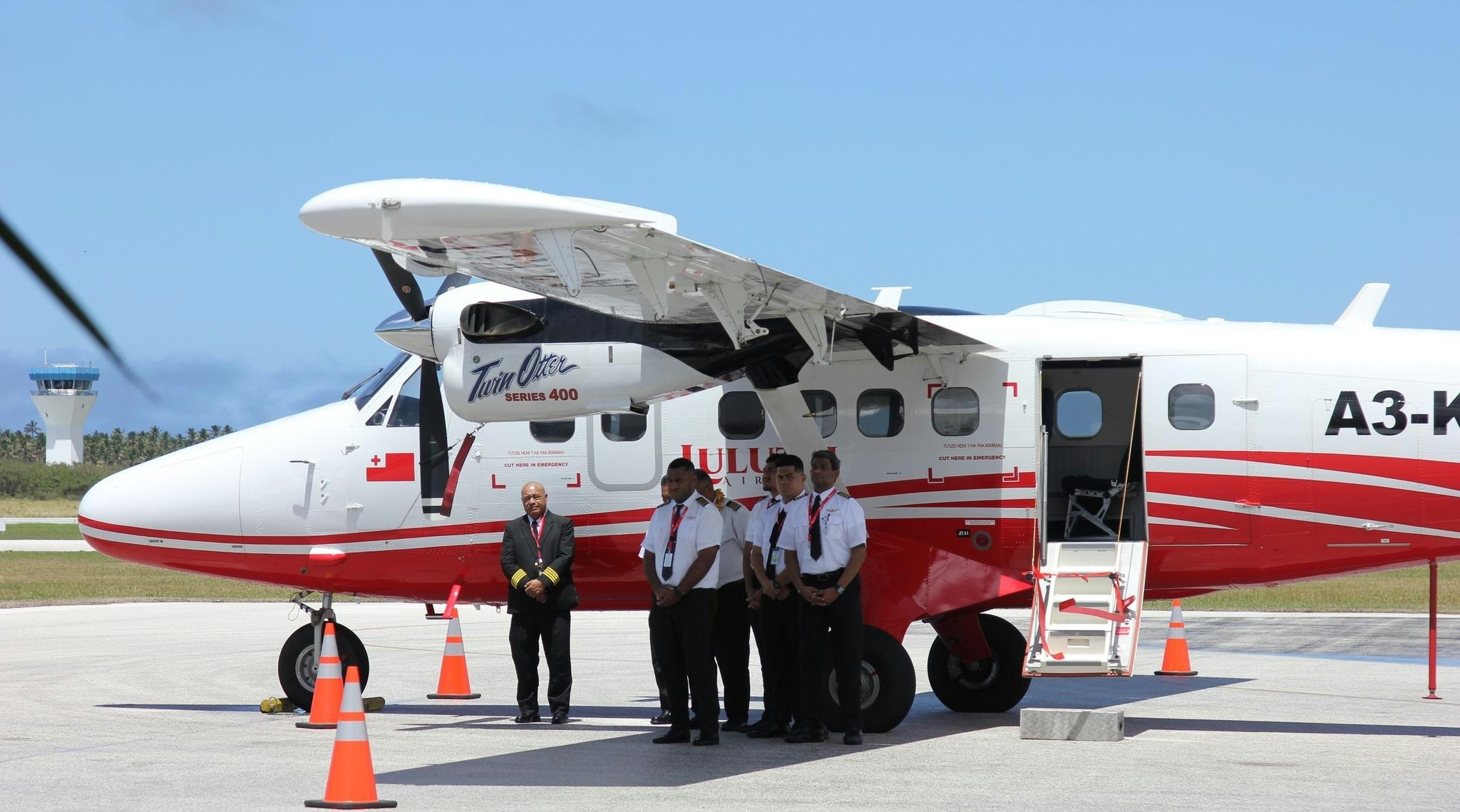AeroGenie — Il tuo copilota intelligente.
Tendenze
Categories
Tonga Grounds Lulutai Airlines Over Maintenance Issues

Tonga Grounds Lulutai Airlines Over Maintenance Breaches
Tonga’s Civil Aviation Division has suspended the Part 145 maintenance certificate of Lulutai Airlines, effectively grounding all of the airline’s in-house flight operations until at least July 25, 2025. This decisive action follows a regulatory audit that revealed breaches of Civil Aviation Rules, though specific details of the violations were not disclosed in the statement issued on July 18. The suspension will remain in place until Lulutai Airlines implements the necessary corrective measures, prohibiting the carrier from performing any line or heavy maintenance on its fleet.
Impact on Operations and Passengers
As a direct consequence of the suspension, both of Lulutai’s aircraft—the Y12 A3-SPV and the DHC-6-300 A3-KLT—have been grounded and remain parked at Tongatapu, according to Flightradar24 data. The airline has been compelled to halt services to several remote islands, including Eua, Ha'apai, Niuafo'ou, and Niuatoputapu. This disruption has left dozens of passengers stranded, with local reports indicating that at least 70 individuals, among them Tourism Minister Mo'ale Finau, are unable to depart from Ha'apai. Foreign tourists are also affected, unable to travel from Tongatapu to resorts on other islands.
While Lulutai Airlines continues to operate the Tongatapu-Vava'u route, it does so using a damp-leased Saab 340B aircraft from New Zealand’s Air Chathams. However, operational limitations and the short runways at other destinations prevent this 34-seater from servicing the full network, further exacerbating the disruption to domestic air travel.
Broader Industry Context and Implications
The grounding of Lulutai Airlines highlights wider challenges confronting the aviation sector both regionally and globally. Airlines worldwide are contending with aircraft shortages, maintenance backlogs, and disruptions in air traffic management systems. Recent high-profile incidents, such as the temporary grounding of Alaska Airlines and increasing cybersecurity threats, have intensified scrutiny on airline safety and operational resilience. In Tonga, the suspension has raised significant concerns regarding passenger safety and the reliability of domestic air services, with potential repercussions for travel plans and the reputation of local carriers.
Competitors in the region may respond by enhancing their own maintenance protocols and seeking to capitalize on Lulutai’s absence to expand market share. The timing of the suspension is particularly critical for Lulutai Airlines, which has reportedly been on the verge of securing new investment to address its financial difficulties.
As the suspension remains in effect, attention is focused on regulatory oversight and the urgent need to strengthen maintenance and operational infrastructure to restore confidence in Tonga’s domestic aviation services.

Emirates Unveils Cabin Design for New Boeing 777X

Eighteen Years On, the Airbus A380 Remains Central to a $34 Billion Airline

How a boom in luxury airline seats is slowing down jet deliveries

Navitaire Outage Attributed to Planned Maintenance

Airbus Plans Record Delivery of 870 Aircraft in 2026

DigiYatra Debuts Outside Aviation at India AI Impact Summit

Vietnam Orders Strengthen Boeing’s Commercial Outlook

Airbus Signals Uncertainty Over Future A400M Orders

JobsOhio Awards $2 Million Grant to Hartzell Propeller for Innovation Center

Collins Aerospace Tests Sidekick Autonomy Software on YFQ-42A for U.S. Air Force CCA Program
